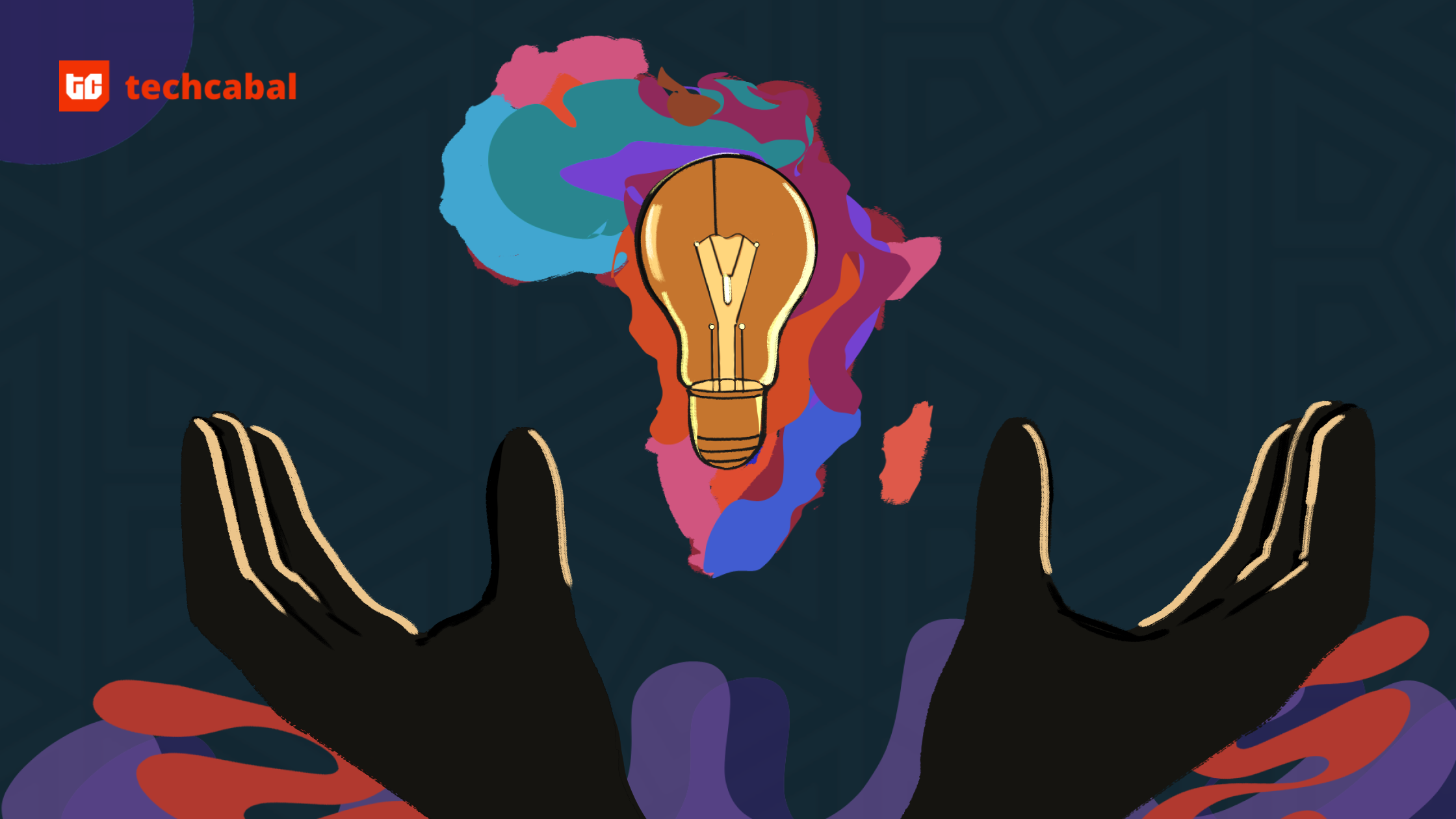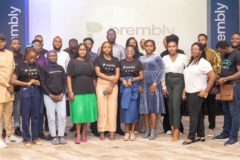It’s safe to say the Africa startup ecosystem came full circle last year with a record-breaking number of new innovative startups and huge investment to match it. If innovation is a reflection of economic, social, and technological advancement, then we can say the ecosystem has advanced.
So, out of hundreds of excellent startups in Africa, we have curated 11 that we think you, our readers, should watch closely as we expect them to do some incredible stuff this year.
Fintech/cryptocurrency
Founded in February 2020 by Stephen Young, NFTfi is a decentralised and peer-to-peer cryptocurrency loan platform where users can list their NFT collateral to get loan offers from other users.
On the platform, you can request for a loan using your NFT and other users start bidding to lend you money in cryptocurrency with varying interest rates and repayment terms. Once you accept an offer, you’ll receive wETH or DAI liquidity in your wallet and your NFT is transferred into a double-audited escrow smart contract for the loan duration. If you repay the loan before it expires, you’ll get your NFT back. If you default, the lender can foreclose and receive your NFT.
This is a good innovation considering the amount of money locked in NFTs. Imagine being able to access liquidity without selling off your NFT.
As crypto continues to gain mass acceptance and adoption, so does the need to make it easy for holders to transact with it. Lazerpay, founded and launched into beta in November last year by Njoku Emmanuel, Abdulfatai Suleiman, and Prosper Ubi is a payment gateway for crypto. Think of Paystack, but for crypto.
Last year, Lazerpay secured an undisclosed amount of investment from Nestcoin, an innovative venture that builds, operates, and invests in crypto and Web3 products. As it’s set to launch to the public, the startup is expected to do to cryptocurrency what Paystack and Flutterwave are doing to fiat in Africa.
Co-founded by Jude Dike, William Okafor, and Temitope Ekundayo, and launched in July 2021, GetEquity says it wants to make funding easy and quick for African startups, and at the backend of it, help common people have a bite of the booming startup ecosystem.
On GetEquity, users get to invest as little as $10 in startups. Startups get instant access to several angel investors, syndicates, and institutional investors. Startups also get the chance to raise investment from their communities and customers, “giving ownership and building a stronger sense of belonging with their most loyal customers”.
As at December last year, according to the co-founders, the company has experienced a 100% growth rate across all metrics. It has over 4,000 users on its platform. About 20 startups are currently listed on its platform and over $400,000 has been invested on the platform.
Founded by Jesse Ghansah and Barima Effah, Float, formerly known as Swipe, was launched in June 2021 as a cash management and credit provider fintech company for Africa’s fast-growth companies.
The startup recently picked up $17 million in equity and debt funding from notable investors across the world including Cauris, Tiger Global, and Justin Mateen’s JAM Fund, Ingressive Capital, Magic Fund, and many angel investors.
The company is already operational in Nigeria and Kenya and the seed round is expected to expedite its growth this year.
Launched in April last year by Ahmed Sabbah, a co-founder at Swvl and Youssef Sholqamy, a former engineer at Uber, Telda is a digital bank that provides free accounts for its users and enables them to send and receive money. It also provides them with a card to use online, in stores, make withdrawals and pay bills.
In May, just a month after it launched, the company announced that it has raised $5 million pre-seed funding led by Sequoia. It also affirmed that it is the first company to receive a license from the Central Bank of Egypt (CBE) under its new regulations to issue cards and onboard customers digitally.
Owing to its achievement in a short period of time, we expect the startup to even achieve more in 2022, so get your eyes peeled on this one.
Edtech
Craydel is an edtech startup that was launched in March 2021 by Manish Sardana, John Nguru, and Shayne Aman Premji. The startup creates a reliable portal to guide African students in their tertiary education, course selection, and career decisions.
Craydel provides a digital end-to-end higher education service. Its service spans from the point of students choosing schools, programmes, and courses to the application and admission stages. The company also provides visa support for those who choose to study abroad, all for free.
Craydel is already in partnership with 90 institutions across Canada, the UK and US, Ireland, and African countries like Malawi and Kenya. There are over 3,000 courses—spread across undergraduate and postgraduate programmes—available to choose from.
Founded in May 2021 but launched into beta in December by former Google Nigeria boss, Honey Ogundeyi, Edukoya says it wants to empower learners and their parents to take control of their learning and make it easier for them to access high-quality learning material and expert help.
The platform is built to target Nigerian secondary school learners. It has raised a $3.5 million pre-seed capital war chest from Target Global and top African founders like Shola Akindolu and Babs Ogundeyin, among others, to bring effective education to its target audience.
With the founder’s experience, quality of the team, and the early investment secured, we expect this startup to do great things in the edtech sector this year.
Healthtech
Bypa-ss was founded by Dr Andrew Saad in 2019 and entered the market with its proprietary product, HealthTag, a platform for Health Information Exchange (HIE), offering physicians a free cloud-based clinic management solution.
Through linking with a cloud database, HealthTag securely stores medical records collected from different healthcare providers and gives them to their rightful owner, the user.
As of November last year, Saad said the company currently has over 17,000 HealthTag cardholders and over 3,500 healthcare providers—mainly in clinics, pharmacies, labs, and radiology centers using their product.
Built on the blockchain technology, Afya Rekod wants to create a seamless mobilised healthcare in Africa, where the patients—who are the only moving parts in healthcare—own all the rights to their data.
Founded in 2019 by the co-founder and CEO of Adanian Labs John Kamara, Afya Rekod provides 4 unique offerings to its customers: its core patient’s portal; electronic health record systems (EHRs) for hospitals; diagnostic centres for medical labs; and disease management for control and management of chronic diseases like Ebola and COVID-19.
Ecommerce and logistics
Tendo is a social ecommerce platform that eases setup and operating costs for social commerce entrepreneurs by providing them with logistics, financing, and marketing.
Founded by Derrick Mungai, Evans Darbo Boateng, Felix Manford, and Primerose Katena, Tendo provides a curated catalogue of products, marketing tools, and other tools that facilitate trading for its users—resellers—to choose from. Once they sell the product at their own chosen price, Tendo handles the rest—ships the product, subtracts the cost and remits the profit in the account of the seller.
Tendo simply enables anyone to start an online shop with zero capital. The company has a unique solution to social commerce. It also made it into Y Combinator 2022 Winter Batch, and this is an indicator of its potential to be watched closely.
Founded in June 2021 by Tola Onayemi and Tope Obanla, Norebase, a one-stop-shop digital platform for African businesses to expand, file trademarks, and patent intellectual property (IP) across the continent.
The startup handles everything it takes for a business to launch in a new African country. It’s a 360-degree business launchpad: business registration, opening of business bank accounts, compliances, license acquisition, and further legal requirements—all from one dashboard.
We think this startup is building a game-changing product; something that will have a significant impact on the growth of African startups.
We know you have some startups you are rooting for this year that we might have missed. Please tell us about them in the comment section below.





















